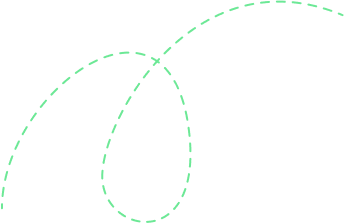Overview of Course
Our Oracle PL SQL Training course is designed to help you learn and master the Oracle PL/SQL programming language. PL/SQL is a procedural language used to write applications in Oracle databases. This course will cover the basic and advanced concepts of PL/SQL, including data types, control structures, loops, arrays, procedures, functions, and more.
Course Highlights

Hands-on training with real-world examples

Expert instructors with years of industry experience

Flexible learning options: online or in-person
Key Differentiators
Personalized Learning with Custom Curriculum
Training curriculum to meet the unique needs of each individual
Trusted by over 100+ Fortune 500 Companies
We help organizations deliver right outcomes by training talent
Flexible Schedule & Delivery
Choose between virtual/offline with Weekend options
World Class Learning Infrastructure
Our learning platform provides leading virtual training labs & instances
Enterprise Grade Data Protection
Security & privacy are an integral part of our training ethos
Real-world Projects
We work with experts to curate real business scenarios as training projects
Skills You’ll Learn
Writing and executing PL/SQL code
Creating stored procedures and functions
Implementing control structures and loops
Managing exceptions and errors
Using PL/SQL tables and arrays
Developing database triggers
Querying and updating data in Oracle databases
Creating views and indexes
Training Options



1-on-1 Training
Access to live online classes
Flexible schedule including weekends
Hands-on exercises with virtual labs
Session recordings and learning courseware included
24X7 learner support and assistance
Book a free demo before you commit!

Corporate Training
Everything in 1-on-1 Training plus
Custom Curriculum
Extended access to virtual labs
Detailed reporting of every candidate
Projects and assessments
Consulting Support
Training aligned to business outcomes
 Unlock Organizational Success through Effective Corporate Training: Enhance Employee Skills and Adaptability
Unlock Organizational Success through Effective Corporate Training: Enhance Employee Skills and Adaptability- Choose customized training to address specific business challenges and goals, which leads to better outcomes and success.
- Keep employees up-to-date with changing industry trends and advancements.
- Adapt to new technologies & processes and increase efficiency and profitability.
- Improve employee morale, job satisfaction, and retention rates.
- Reduce employee turnovers and associated costs, such as recruitment and onboarding expenses.
- Obtain long-term organizational growth and success.
Course Reviews
Curriculum
- Introduction to SQL Developer and SQL Plus
- Differences between SQL Developer and SQL Plus
- Features of SQL Developer
- Features of SQL Plus
- Installing and setting up SQL Developer and SQL Plus
- Connecting to a database using SQL Developer and SQL Plus
- Executing SQL commands in SQL Developer and SQL Plus
- SQL Developer and SQL Plus shortcuts and tips
- Definition of PL/SQL
- Advantages of PL/SQL
- Difference between SQL and PL/SQL
- Components of PL/SQL
- Data types in PL/SQL
- Variables and constants in PL/SQL
- Operators in PL/SQL
- Comments in PL/SQL
- Executing PL/SQL code
- Control structures in PL/SQL
- Conditional statements (IF, CASE)
- Looping statements (FOR, WHILE, LOOP)
- Nested loops in PL/SQL
- GOTO statement
- Labels
- IF statement
- IF-THEN-ELSE statement
- IF-THEN-ELSIF statement
- Nested IF statements
- CASE statement
- Data Manipulation Language (DML) commands in PL/SQL
- SELECT INTO statement
- INSERT statement
- UPDATE statement
- DELETE statement
- MERGE statement
- COMMIT and ROLLBACK statements
- Creating and calling procedures in PL/SQL
- Creating and calling functions in PL/SQL
- Parameters in procedures and functions
- Types of parameters (IN, OUT, IN OUT)
- Returning values from functions
- Handling exceptions in PL/SQL
- Types of exceptions
- RAISE statement
- Exception propagation
- User-defined exceptions
- Creating packages in PL/SQL
- Advantages of using packages
- Calling procedures and functions from a package
- Public and private objects in a package
- Packaging variables and cursors
- Declaring and initializing records in PL/SQL
- Manipulating records
- Composite data types in PL/SQL
- Record types in PL/SQL
- Implicit and explicit cursors
- Cursor attributes
- Opening and closing cursors
- Fetching data from cursors
- Cursor FOR loops
- Dynamic cursors
- Declaring and initializing collections in PL/SQL
- Manipulating collections
- Types of collections (varray, nested table, associative array)
- Multidimensional collections
- Declaring and initializing collections in PL/SQL
- Manipulating collections
- Types of collections (varray, nested table, associative array)
- Multidimensional collections
- Advantages of bulk processing
- Bulk processing using FORALL statement
- Bulk processing using BULK COLLECT statement
- Bulk exceptions
- Advantages of dynamic SQL
- Using EXECUTE IMMEDIATE statement
- Using DBMS_SQL package
- Definition of table functions
- Creating table functions in PL/SQL
- Returning result sets from table functions
- Using table functions in SQL statements
- Definition of large objects
- Types of large objects (BLOB, CLOB, NCLOB)
- Storing and retrieving large objects
- Manipulating large objects
- Defining the scope and requirements of the project
- Creating the database

 Meet the instructor and learn about the course content and teaching style.
Meet the instructor and learn about the course content and teaching style. Make informed decisions about whether to enroll in the course or not.
Make informed decisions about whether to enroll in the course or not. Get a perspective with a glimpse of what the learning process entails.
Get a perspective with a glimpse of what the learning process entails.
Description

Target Audience:
- Database administrators
- Developers
- Software engineers
- Anyone interested in learning PL/SQL programming

Prerequisite:
- Basic knowledge of SQL
- Familiarity with database concepts

Benefits of the course:
- Gain a solid foundation in PL/SQL programming
- Develop skills to write complex programs and applications
- Increase your employability in the IT industry
- Prepare for Oracle certification exams

Exam details to pass the course:
- There is no exam required to pass this course.
- However, we recommend that you practice your PL/SQL programming skills regularly to ensure that you have mastered the concepts covered in the course.

Certification path:
- To become an Oracle Certified Professional, you must pass two exams: Oracle Database SQL and Oracle PL/SQL Developer Certified Associate.
- Once you have completed these exams, you can then take the Oracle PL/SQL Developer Certified Professional exam to become a certified professional in PL/SQL development.

Career options after doing the course:
- PL/SQL Developer
- Database Administrator
- Software Engineer
- Database Analyst
- Data Analyst
Why should you take this course from Skillzcafe:

Experienced instructors with industry knowledge
Hands-on training with real-world examples
Flexible learning options to fit your schedule
Access to course materials and resources
Interactive and engaging learning environment
FAQs
PL/SQL stands for Procedural Language/Structured Query Language. It is Oracle's proprietary extension to SQL, which allows developers to write complex data-driven applications using procedural constructs like loops, variables, and exceptions.
This course is designed for developers, database administrators, and IT professionals who want to learn how to develop efficient and robust database applications using PL/SQL.
Yes, you should have a basic understanding of SQL and programming concepts. This course assumes that you have some familiarity with SQL queries and basic programming constructs like variables, loops, and conditional statements.
The course covers a range of topics, including PL/SQL fundamentals, control structures, cursors, exceptions, triggers, and stored procedures. You will learn how to write efficient PL/SQL code and create database applications that are easy to maintain and debug.
The course duration of the course is approximately 36 hours.
You should have a computer with internet access, an Oracle database (or access to one), and a basic understanding of SQL and programming concepts.
Yes, you will receive a certificate of completion once you finish the course. This certificate will demonstrate that you have acquired the skills and knowledge required to develop efficient and robust PL/SQL applications.

Provide your workforce with top-tier corporate training programs that empower them to succeed. Our programs, led by subject matter experts from around the world, guarantee the highest quality content and training that align with your business objectives.
-
1500+
Certified Trainers
-
200+
Technologies
-
2 Million+
Trained Professionals
-
99%
Satisfaction Score
-
2000+
Courses
-
120+
Countries
-
180+
Clients
-
1600%
Growth




































 Live Chat
Live Chat